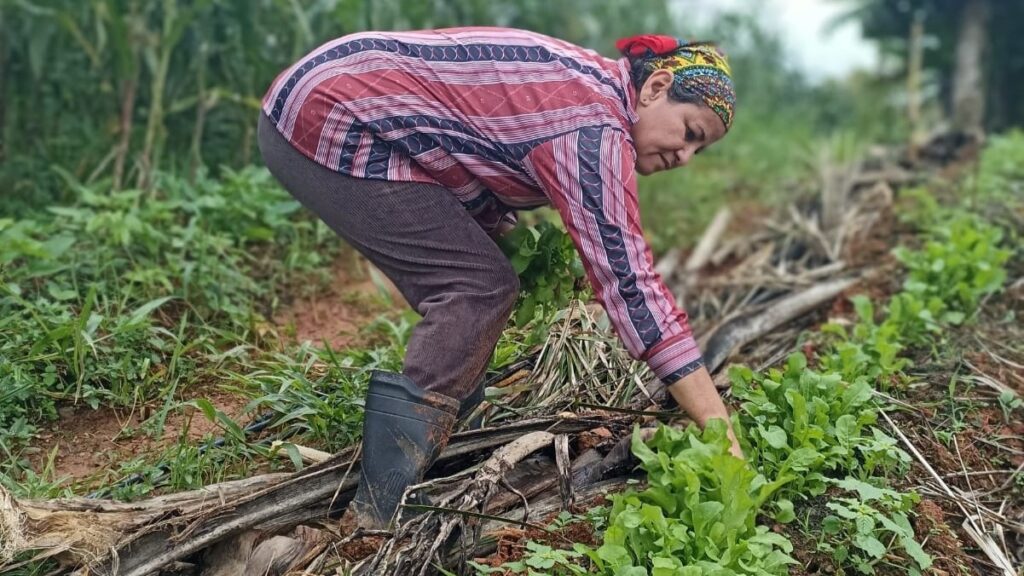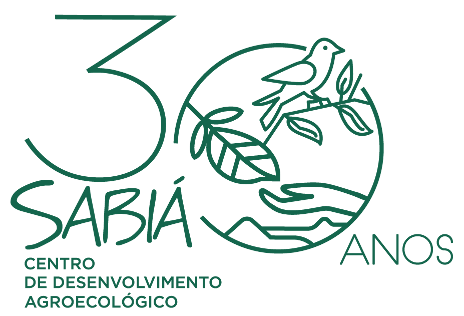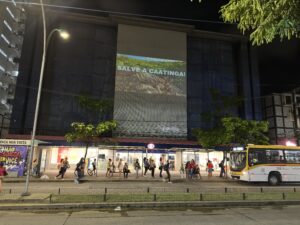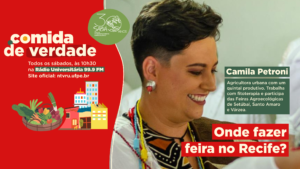Rural Women and Climate Justice
By Verônica Santana
Settled agroecological farmer, popular feminist educator and president of Centro Sabiá

When we think about Climate Justice, we have to think about how climate change has been affecting certain social segments differently: people who live in marginalized areas, without housing and basic sanitation, or in the countryside, where their way of life depends on their relationship with the environment, are affected differently, so even though it is a global problem, the impacts are unequal. It is the peripheral populations that suffer most from floods, for example. It is in regions where water is scarce that our lives will be threatened, with the loss of biodiversity and an increase in hunger.
In this context, we have residents of these territories, black and peripheral populations, indigenous people and family farmers who have their ways of life reproduced through their relationship with the territory. Black women, who have historically been denied their rights, suffer from unemployment or lack of land, along with young people, and have been the main victims of the climate crisis. It is estimated that three billion people in the world live in places vulnerable to the climate crisis (source IPCC). And that women represent 80% of the people forced to migrate by climate change, according to the UN. Another important issue is that the changes we are experiencing are driven by human action, by capitalist modes of production and tend to get worse and worse.
To help us understand these phenomena and how they deepen inequalities, in addition to science, movements have debated and formulated concepts, which we have further developed into strategies for climate resistance and resilience. To understand environmental racism and how it occurs in the countryside, in rural areas, is to shed light on our reflections on the impacts of major projects on our territories. They are always about our territories or our bodies’ territories. For us rural women, the reality is that every year we have to travel further to fetch water or lose our seeds and biodiversity, thus contributing to increased food insecurity.
Women, who have played a role in maintaining the territories and are the main victims, are also the protagonists in the resistance. Here I bring you the women of the Borborema Pole, in Paraíba, who for 15 years have been building the March for Women’s Lives and Agroecology, always held in March. This is the second year that the march has denounced the impacts of renewable energies on peasant and agroecological territories. With the slogan “Renewable energy, yes! But not like this! The women continue to denounce a series of losses to families in the production of plant food and small animals, and to the health of the population.
The March of the Daisies, an important action by women from the countryside, forests and waters, has also denounced these false solutions, putting forward proposals for public policies and in the March’s debate under the slogan Protection of Nature with Environmental and Climate Justice, which, as well as problematizing the issue, brings to bear the wisdom of women who need to be heard in the various decision-making spaces in climate discussions.
Women have also played a leading role in the struggles and processes of agroecological production, which have been shown to mitigate the effects of the climate crisis. Since we women are responsible for biodiversity, we can say “Without Feminism there is no Agroecology”, or “If there is racism, it is not Agroecology”.
Therefore, fighting for climate justice means fighting for all forms of gender, racial and intergenerational inequality. Recognize the knowledge of populations, especially women, from the countryside, forests and waters, promoting participation in decision-making spaces. Protecting territories as living spaces, free from all forms of violence.
Nothing found.




